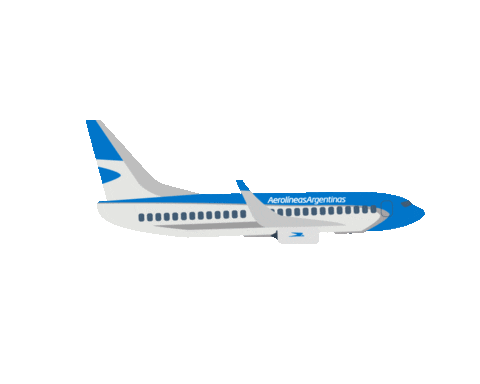
Study in Canada from Nepal: Your Ultimate Guide with the Best Consultancy
Canada is a popular choice for students from around the world, including Nepal. It has many universities and colleges that offer a variety of programs. The quality of education is very high and often compared to that of other developed countries. One of the best parts is that tuition fees are generally lower in Canada, making it more affordable for students. This combination of quality and cost makes Canada an attractive option for those seeking higher education
In addition to education, Canada is known for its friendly and safe environment. The country is home to people from many different backgrounds, which adds to its rich culture. Students can enjoy a variety of experiences, from city life to beautiful natural landscapes. Canada often ranks high in terms of safety and quality of life, making it a great place to live and study

Table of Contents
Interesting Facts About Canada
– Canada is a top country for language learning. About 21% of people here speak a foreign language as their first language. Of these, 40% speak European languages, and 56% speak Asian languages.
– Canada has more lakes than any other country. It is also rich in natural resources, helping its strong economy.
– A lot of international students—about 51%—plan to stay in Canada after their studies by applying for permanent residence.
– Basketball was created in Canada, showing the country’s influence on sports.
– In 2019, there were around 1.1 million full-time and 266,000 part-time students in Canadian universities. Between 2009 and 2019, Canada created over 1.7 million new jobs for graduates.
– About 78% of Canadian universities offer activities that help students from different cultures connect and engage with one another.
– Living in Canada costs less than in many other popular student countries, making it an appealing choice for students from abroad.
– Canada is known for its high quality of life. Many cities here are among the best places to live in the world, offering a great experience for both residents and students.
Why Study in Canada?
Canada is a modern country in North America, known for its beautiful snow-capped mountains and hockey. It shares a border with the United States. Recently, Canada has become a popular choice for students from Nepal because of its high-quality education.
International students enjoy many benefits in Canada. The tuition fees are lower compared to other countries, and the environment is safe for learning. This makes Canada one of the best places to get an education and gain real work experience. After finishing their degrees, students can apply for permanent residency in Canada.
The Canadian government actively promotes its universities and colleges to attract international students. Several factors make Canada a great choice for studying, such as its clean water, low population density, and a healthcare system that is considered excellent

Frequently Asked Questions (FAQs)
Key Benefits of Studying in Canada for Nepalese Students
Friendly and Supportive Education System
Canada welcomes students from Nepal with care. Universities offer support services like career counseling and mental health help. This creates a positive environment where students feel safe and focused on learning.High-Quality Education with Hands-On Experience
Canada offers top-level education with practical learning. Degrees from Canadian universities are accepted worldwide. After graduation, students can apply for a post-study work permit to gain real-world experience in Canada.Safe and Peaceful Environment
Canada is one of the safest countries for students. Universities have 24/7 security and support teams. Nepalese students can study peacefully in a friendly and low-crime environment.Work and Study Together
International students in Canada can work part-time for up to 20 hours a week. This helps manage tuition fees and living costs. Scholarships are also available, and students can apply for permanent residency after graduation.Affordable Education and Living
Canada offers good education at lower costs compared to other countries. Living expenses are manageable with access to public services, student housing, and healthcare. For Nepalese students, Canada offers both quality education and an affordable lifestyle.
Education System in Canada
Canada offers both public and private schools. Students can study at community colleges, technical institutes, universities, and more. Most universities are publicly funded, which means students get high-quality education everywhere.
Each province manages its own education system, so programs can differ. But standards are always high across the country. This makes Canada a great place for international students, including those from Nepal.
Students finish elementary school (up to grade 8), then move to high school (grades 9-12). After high school, they can attend over 175 colleges and universities offering certificates, diplomas, and bachelor’s degrees.
Most bachelor’s degrees take four years, but some in Ontario take three. Master’s programs usually take two years. Canadian degrees are respected worldwide, helping students build strong careers both in Canada and abroad.

Admission Requirements for Studying in Canada
When planning to study in Canada, understanding the admission requirements is essential. Canadian universities generally look for students with a strong academic record. Applicants typically need good scores in TOEFL or IELTS to show their English proficiency.
To gain admission to M.S. or MBA programs, students usually need a four-year Bachelor’s degree with at least a mid-B grade (around 70%). For those with a three-year degree, qualifying for Postgraduate diploma programs is possible with a minimum score of around 240 on the TOEFL.
PhD programs in Canada typically require five years of full-time study. Students must complete coursework, conduct original research, and defend their thesis in an oral examination.
Timing is crucial in the admission process. It can take about a year to complete all steps, so it’s advisable to apply at least one year before the semester begins. Most universities set a January deadline for the September intake.
The main academic year runs from September to May, with many universities offering summer courses and a January intake as well. June to August is usually a vacation period.
Canadian institutions offer a wide variety of programs across all fields, making them an excellent choice for international students looking to advance their education and careers.
Top Courses in Canada
- Hospitality and Tourism (Hotel Management)
- Media and Communication
- Architecture
- Business
- Computer Science & IT
- Fine Arts
- Economics
- Education
- Law
- Engineering

Career Opportunities for Students in Canada
Canada offers excellent job opportunities for international students, making it a great place for higher education. The government has various work programs to help students gain valuable experience while they study:
Work Program
International students who complete a diploma degree from a recognized institution in Canada can participate in a work program. This allows them to work part-time while studying, giving them hands-on experience in their field.
Post-Graduation Work Permit (PGWP)
After graduation, students can apply for a PGWP, which allows them to work in Canada for up to three years. This experience not only enhances their resumes but also helps them on the path to permanent residency
Off-Campus Work
Nepali students in full-time degree programs can work off-campus without needing a separate permit. They can work up to 20 hours per week during classes and full-time during breaks. Many students choose part-time jobs to help cover their tuition and living costs.
Frequently Asked Questions (FAQs)
Nepali students need a Letter of Acceptance from a Designated Learning Institution (DLI), proof of financial support, and health clearance. Applications are submitted through the IRCC portal with required documentation.
Tuition fees range from CAD 15,000 to CAD 35,000 annually, depending on the program and institution. Living expenses add around CAD 10,000 to CAD 15,000 per year.
Canadian universities offer merit-based scholarships for international students, such as the Vanier Canada Graduate Scholarships and university-specific awards. Eligibility depends on academic excellence and program enrollment.
Yes, Nepali students with a valid study permit can work up to 20 hours per week during semesters and full-time during breaks
Institutions like the University of Toronto, University of British Columbia, and McGill University are popular for their diverse programs and global recognition
Living costs, including accommodation, food, and transportation, are approximately CAD 10,000 to CAD 15,000 annually. On-campus housing can cost CAD 5,000–10,000 per year.
Yes, most Canadian institutions require IELTS for admissions. A score of 6.0–6.5 is commonly required for undergraduate and postgraduate programs.
Programs in Business, Engineering, Health Sciences, and IT are highly sought after by Nepali students for their career opportunities.
Students apply online via the IRCC website, submitting documents like an acceptance letter, proof of funds, and medical test results. The process includes biometric verification.
The Post-Graduation Work Permit (PGWP) allows students to work in Canada for up to three years after graduation, depending on their program duration.







